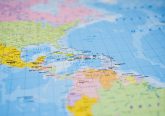More than two million Catalans voted on October 1st in a referendum on self-determination previously declared illegal by the Spanish constitutional court and violently repressed by the Spanish government led by Mariano Rajoy. The response of the Spanish government has been condemned internationally. For instance, Amnesty International described the action of the Spanish police forces in Catalonia as “excessive and disproportionate”. Despite prohibition and violence, which affected participation and the accurate counting of the votes, the referendum took place thanks mostly to the organisation, efforts, and inventiveness of different sectors of the Catalan civil society. In the thousands, citizens engaged in a strategy of peaceful resistance against the aggression of the central state. The ‘yes’ option won with 90% of the votes with 43% registered voters participating. Most of those in favour of the ‘no’ did not vote, as they did not recognise the referendum as valid. Partly because of this absolute rejection, there has not been a serious debate between the pros and cons of independence, which in turn has impoverished and simplified arguments drastically. Moreover, in the past weeks there has been a worrisome level of media manipulation, with a clear interested and partisan use of public media.
Why and how we have arrived at this stage? The issue of Catalan independence is by no means a new one. However, in recent years the situation has increasingly escalated. One of the turning points were the amendments by the Spanish constitutional court in 2010 to the State of Autonomy approved by the Catalan Parliament in 2006. To this, we have to add the outbreak of a harsh economic recession, which resulted in the implementation of unpopular austerity measures, and the systemic political corruption both in Spain and Catalonia. In this unfavourable context, with social unrest in Catalonia against austerity, corruption, and the limitations to its autonomy; part of the so-called political catalanisme, represented by the Catalan nationalist right, changed its political strategy. They aligned with the claims of independentistes, a minority bottom-up social movement that had traditionally come from the left. In the span of six years, the percentage of people in favour of Catalonia being an independent state tripled until reaching just about 50% of the population in Catalonia, its historical maximum. The People’s Party (Spanish right) has proved to be one of the main contributors to the growth of support for Catalan independence. Its victory in the Spanish national election of November 2011, was counteracted in Catalonia with a secessionist majority in its Parliament for the first time in democracy. This was the take-off of the so-called procés (process) towards independence.
Despite the particularities of more recent developments and rampant speculations about what might be happening next, in my opinion the elephant in the room that has to be addressed is the endurance and contradictions of the ‘78 regime. That is, the political system, based on monarchical constitutional nationalism and secured until recently by a bipartisan system, has remained largely in place. As such, the transition to democracy right after the death of dictator Franco continues to cast a long shadow. Both the 15M movement (also known as the movement of the outraged) in 2011, and the current Catalan crisis have evidenced –– despite their differences –– the shortcomings and intransigence of this regime. These processes have opened windows of opportunity for its main detractors both in Spain and Catalonia to voice their discontent.
The repressive response of the Spanish government to the Catalan crisis, denying negotiations to a political conflict and ultimately resorting to violence to “solve it”; together with the uncompromising nature of the King’s speech in response to the Catalan independence vote –– a far cry from its usual conciliatory tone –– are clear examples of the nature and limits of the current Spanish political regime. The staging of the King’s speech, with a picture of the king Carlos III –– who prohibited the education and publication of books in Catalan in the 18th Century –– holding a truncheon behind him, was highly symbolic and revealing. The breakdown of the bipartisan party system, the disenchantment with establishment politics, and the broad support in Catalonia for the right of self-determination are clear indicators of the collapse of the ‘78 regime. Some estimates place the social consensus in Catalonia for the right of self-determination around 80%, in a Catalan society that is nevertheless clearly divided about issue of independence.
It should go without saying that, by shifting the attention to the design and implementation of the ‘78 regime as a key latent root cause of the current political crisis in Spain, I am not denying the important conciliatory and transitory functions the constitution played at the time. The Constitution was based on a wide social and political consensus at a time when Spanish democracy was at the stake. However, after four decades of democratic rule in the country, the situation and challenges the country faces are radically different, and in consequence the ‘78 regime seems to be in a dead end.
Without revisiting the Spanish Constitution, I don’t foresee any clear way out to solve the cyclical political and territorial crises in Spain. In my opinion, the only way forward is a federal state in a form of an inclusive republic, which clearly embraces its plurinationality and diversity as a virtue rather than a burden. Such a compromise solution seems rather idealistic judging from the recent unilateral and irresponsible actions in the name of ‘democracy’ of both the Catalan and Spanish governments. Yet, the trees and their thunderous crashing down in recent weeks should not prevent us from seeing the forest. Experiences from Latin America, where countries such as Bolivia or Ecuador have embraced plurinationality, as highlighted by their most recent constitutions, might serve as examples and leave some room for hope for what the future might bring.






